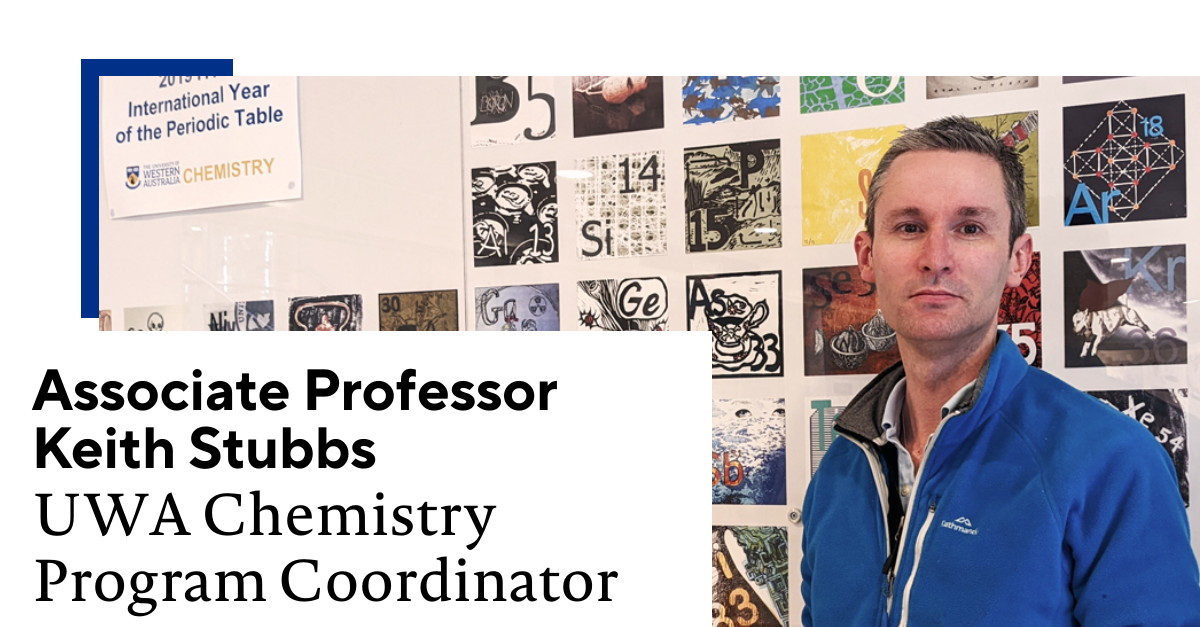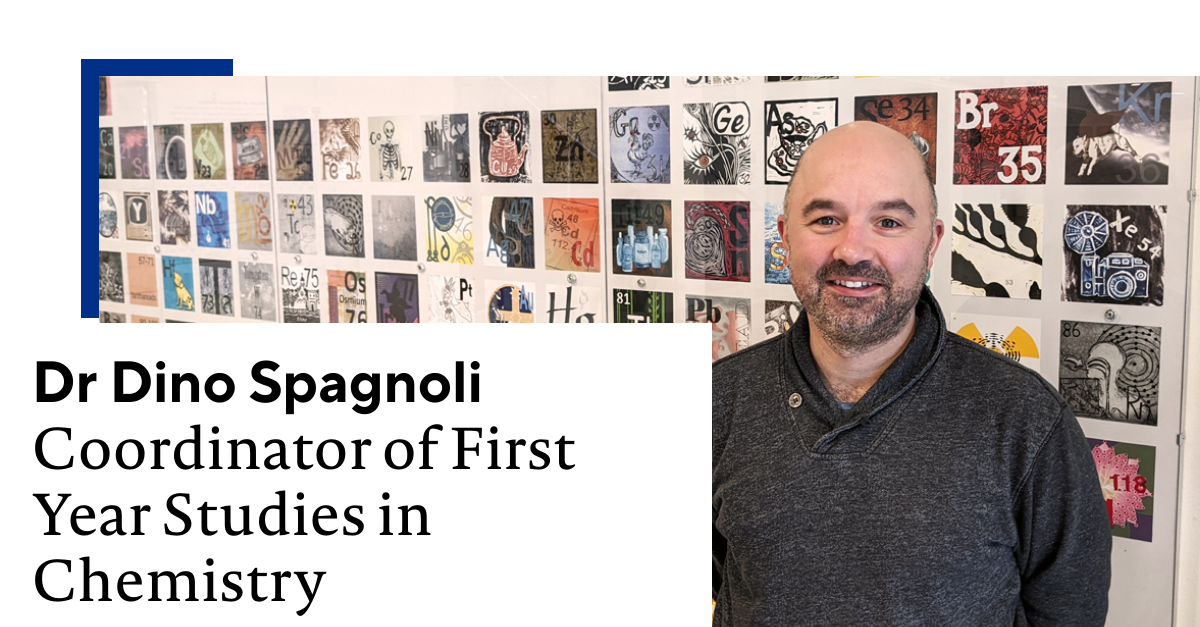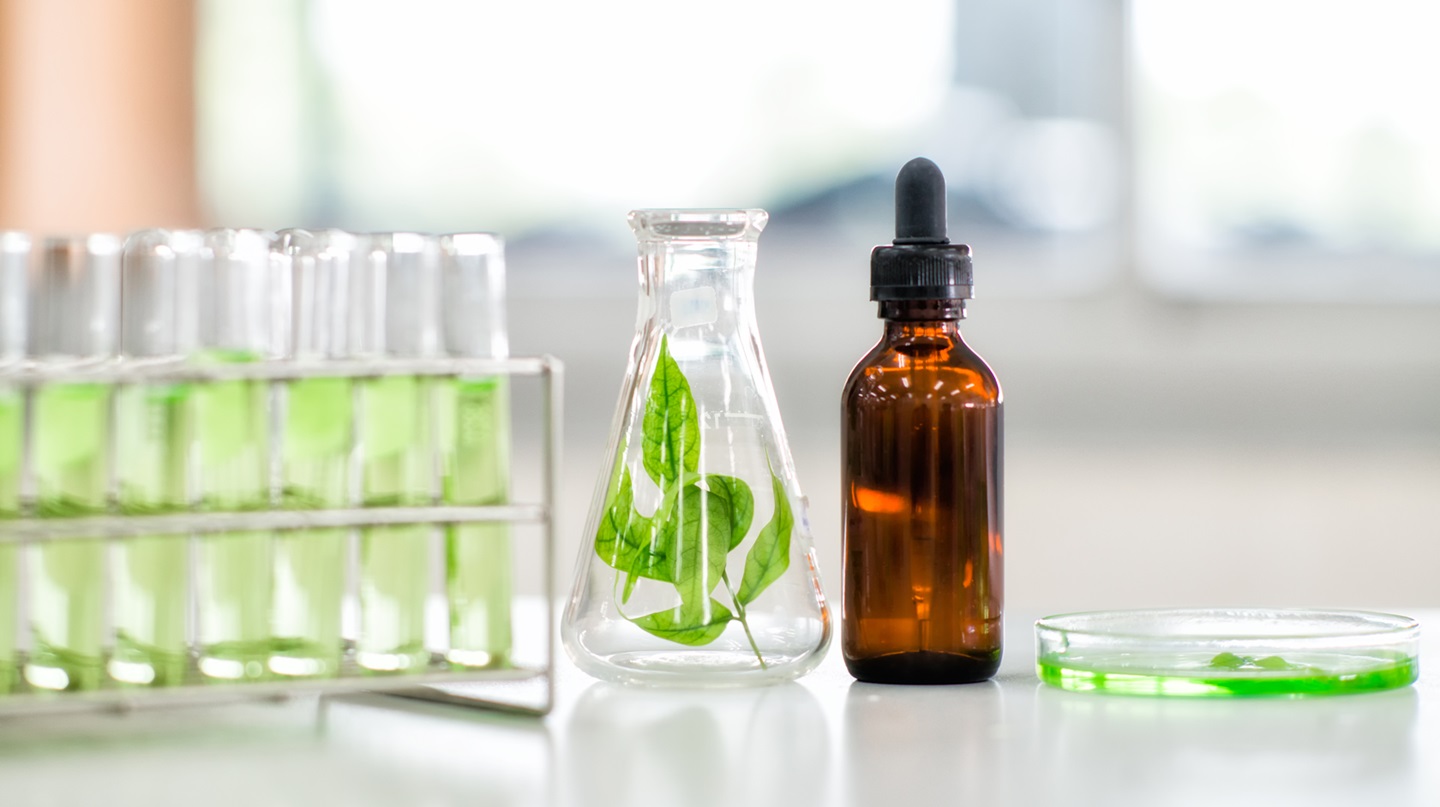It’s not often that you hear both green and chemistry in the same sentence, so you might be surprised to learn that green chemistry has been a growing trend in both the study and practice of chemistry and environmental sciences for the better part of thirty years. More than simply a way of ‘cleaning up’ the chemicals of yester year, green chemistry principles focus on prevention, rather than treatment.

According to Associate Professor Keith Stubbs, UWA’s Chemistry Program Coordinator, green chemistry is more about shifting the mainstream chemistry paradigm away from chemical production that has an infinite (or a really, really long) shelf life, to the holistic negotiation between durability and biodegradability. In Keith’s view, it is not as simple as immediately stopping the use of so-called toxic chemicals, in favour of so-called green alternatives:
The idea that chemicals are bad and natural alternatives are good is an oversimplification because everything in nature can be understood through the language of chemistry. Remember, water is a chemical too.
Associate Professor Keith Stubbs
Moreover, Keith explains that green chemistry, as an important arm of environmental sciences, is about negotiating different interests and consequences.
Take battery powered cars for example. Now, of course, we know that the pollution caused by running cars on petrol is bad, but the current production methods used to make batteries have their own environmental concerns. So, if we get rid of petrol, we stop the resultant burning of fossil fuels, which is great, but now we have to think about the production of batteries and how we make enough power for our needs without harming the environment
Associate Professor Keith Stubbs
For Keith, it would be great to see more students studying Chemistry to increase public understanding of the discipline:
We need more students studying Chemistry to help explain the principles and concepts of Chemistry in everyday life to the public. For students that didn’t take ATAR Chemistry we offer a CHEM1003 unit to bring them up to speed with the basics.
This is a really important point if you think you’d love to get into green chemistry, and drive it forward, why not be part of the solution? As Keith suggests, why not first study Chemistry in a Bachelor of Science and then go on to a Master of Teaching?
Imagine if we could show students in the classroom how limitless the possibilities are with Chemistry and how essential it is to have more people practising green chemistry, what would our world look like in years to come?
One of the best parts of the Chemistry major is how hands-on it is; right from the start it is lab-intensive, which means you’ll be able to ‘get your (sanitised) hands dirty’ in the real-world work of chemists.
According to Dr Dino Spagnoli, First Year Chemistry Coordinator and Chemistry Education researcher, this is one of the main reasons first year students love coming to class:
More than any other Science major, Chemistry is hands-on. It is the science of change, rooted in the history of alchemy, and students get to see first-hand the magic of transformation and how it applies to so many relatable day-to-day tasks. Cooking – which most of us do in some way or another every day – is chemistry.

A key focus of the major, and the Bachelor of Science more broadly, is about building your communication and interdisciplinary teamwork skills – think communicating your ideas with non-scientists – so you are ready for the job market as soon as you graduate. Of particular importance to the practise of green chemistry, Keith emphasises that Chemistry graduates learn to think critically about their place in the world as a scientist:
Our Chemistry major gives students a deeper understanding of the ethical, environmental and political consequences of their work and teaches them how to communicate these interests to a wide variety of stakeholders.
Communication skills are some of the defining features of UWA Chemistry graduates, so there is no surprise when Dino tells us that many of them pursue careers in management and consulting:
Chemistry graduates are sought after across industries in management and consulting because of their high-level problem-solving abilities, which a Chemistry major begins to nurture in students from day one.
At UWA, our comprehensive degrees give you the flexibility to choose elective units from inside or outside your chosen specialisation, giving you the freedom to chart your own course into the green workforce of tomorrow. For information about the Chemistry major and available units you can enrol in, visit the dedicated website.
To keep up with the latest news from the School of Molecular Sciences, follow them on Twitter or join the conversation on Facebook.







